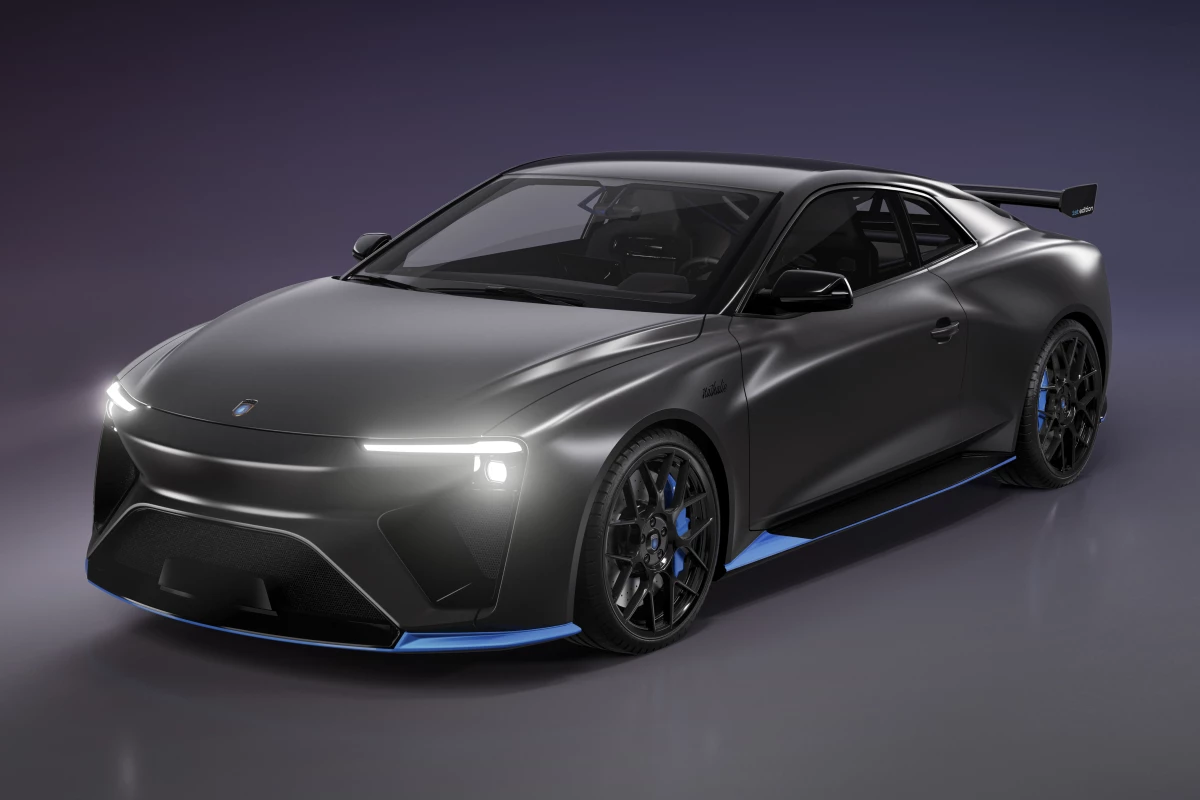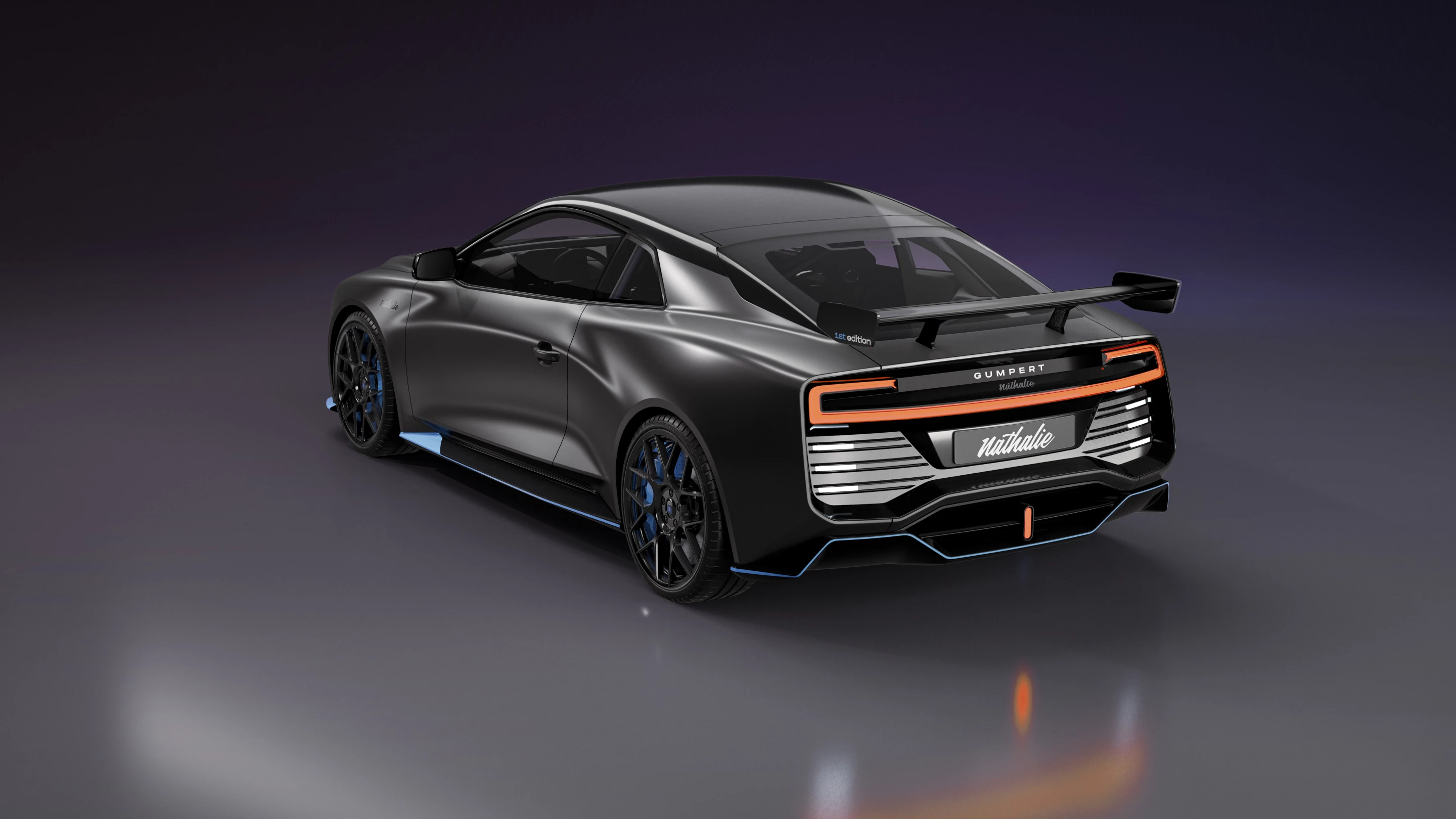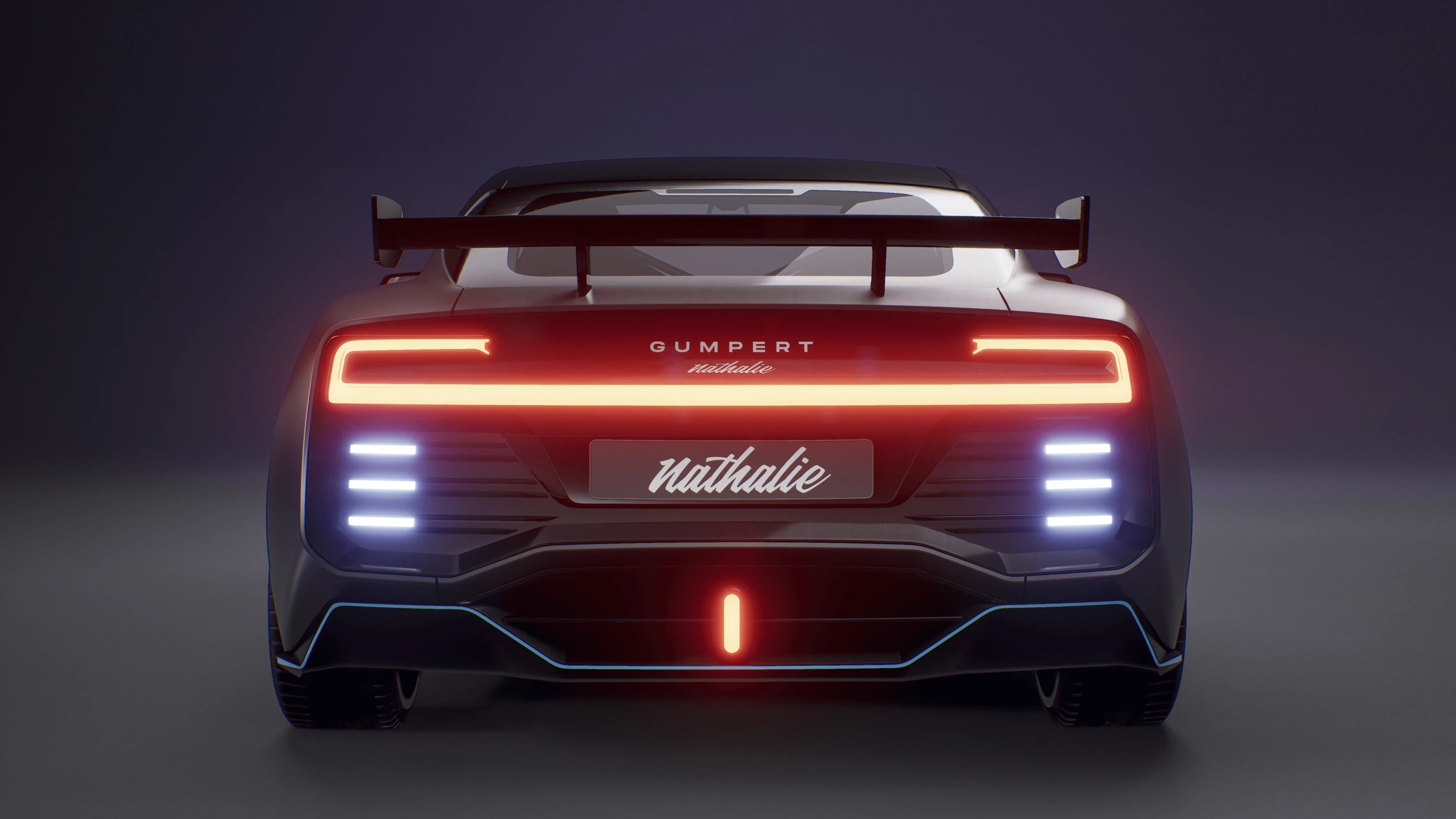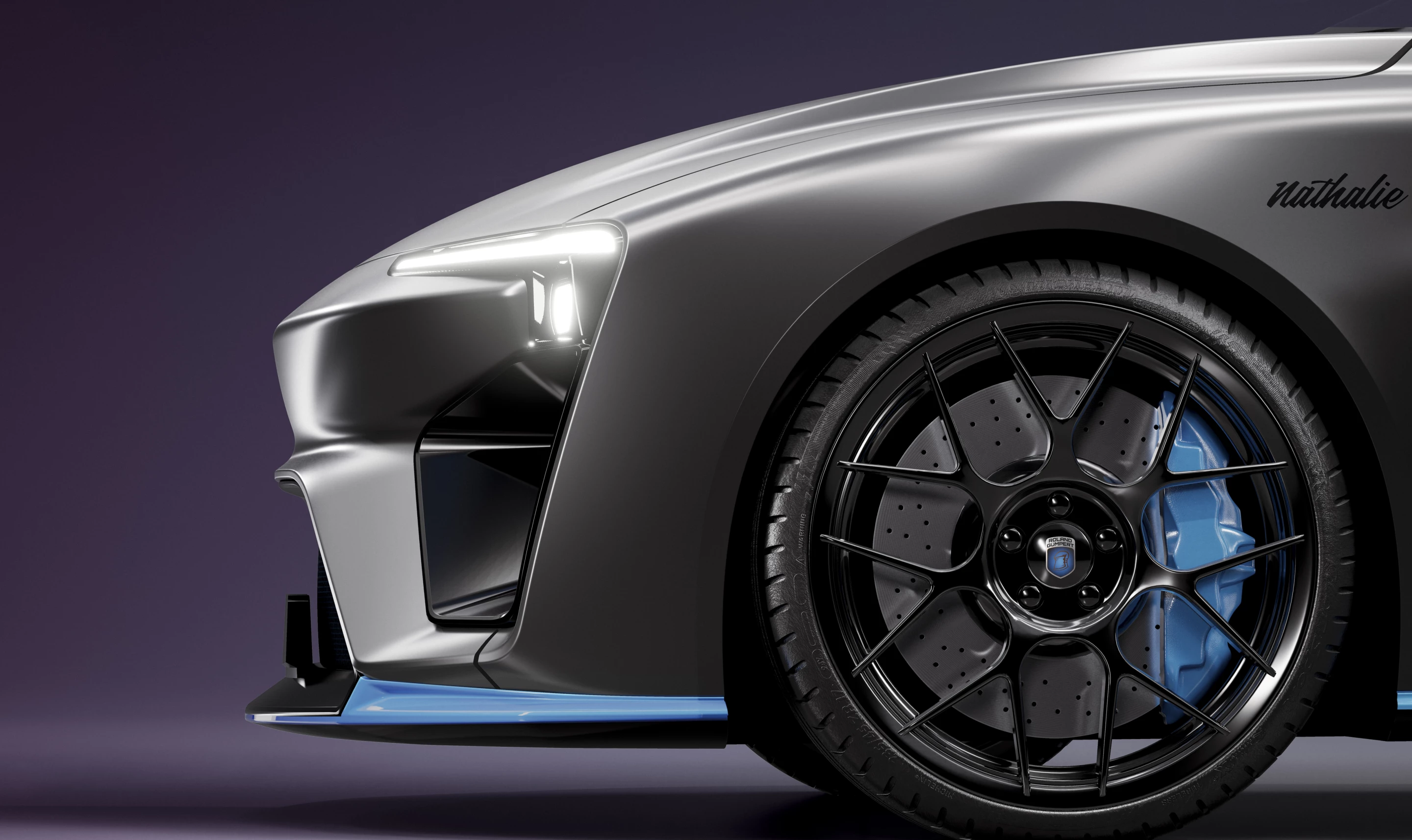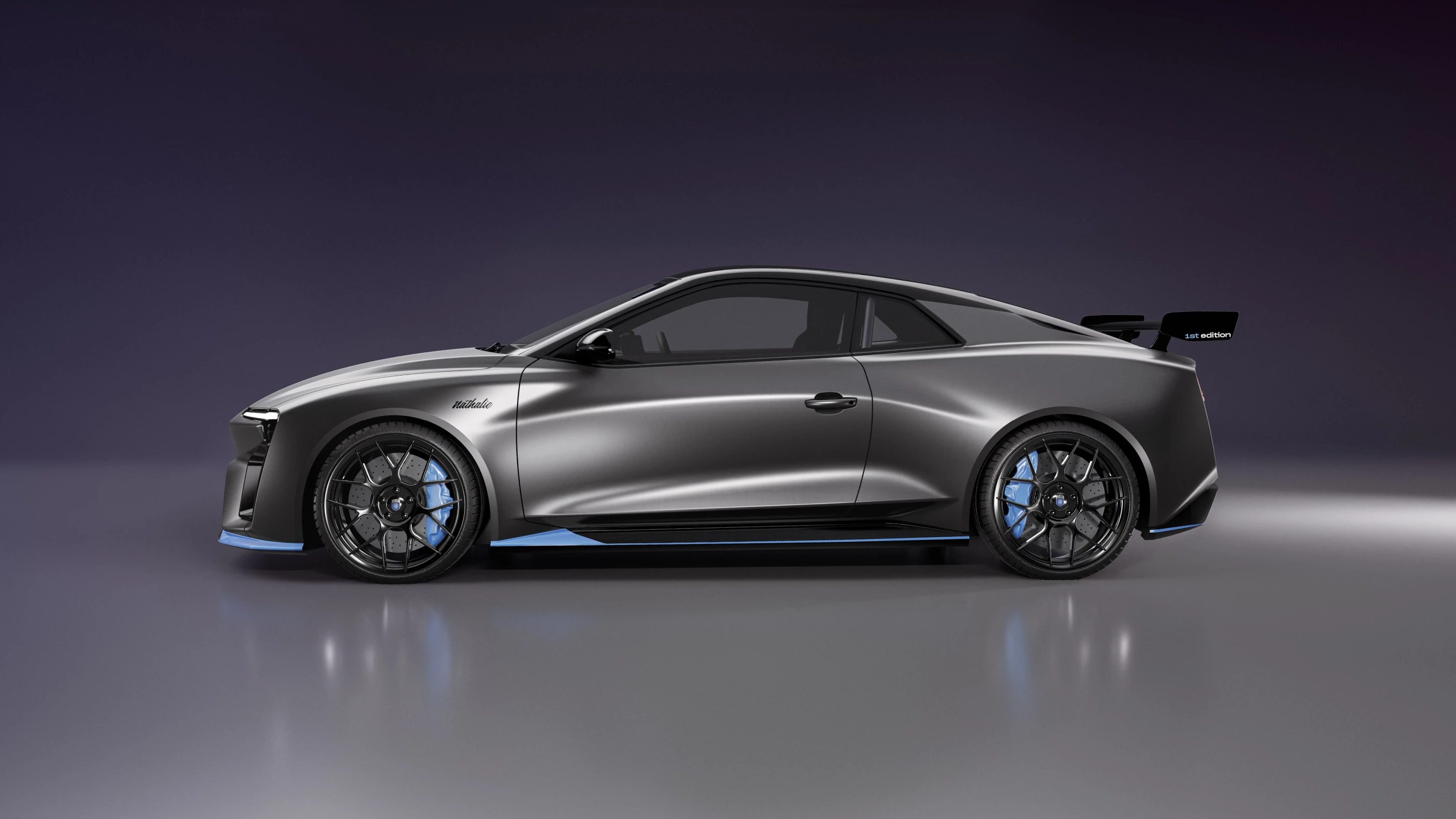A year after showing off a purple haze of a concept car at the 2019 Geneva Motor Show, Gumpert Aiways has launched the first edition of its production Nathalie supercar. Instead of a run-of-the-mill electric or plug-in hybrid drive, the Nathalie relies on electric motors backed by a methanol fuel cell. This combo delivers a driving range of over 500 miles (805 km), refuel times of three minutes, and performance figures that include a 2.5-second 0-62 mph (100 km/h) sprint.
A major bone of contention we had with the original Nathalie concept was the question of how a 5-kW methanol fuel cell would effectively power a 600-kW electric drive. In the journey from concept to production car, Gumpert has addressed that issue in part by compressing that huge spread from both ends.
The methanol fuel cell under the hood now supplies 15 kW of continuous power to a 400-kW (536-hp) electric drive. A buffer battery sits in between the two, supplying any extra juice needed for faster, livelier driving. The fuel cell charges the battery during low-demand situations like city driving and recuperative braking kicks in extra charging to help ensure there's battery power when needed.
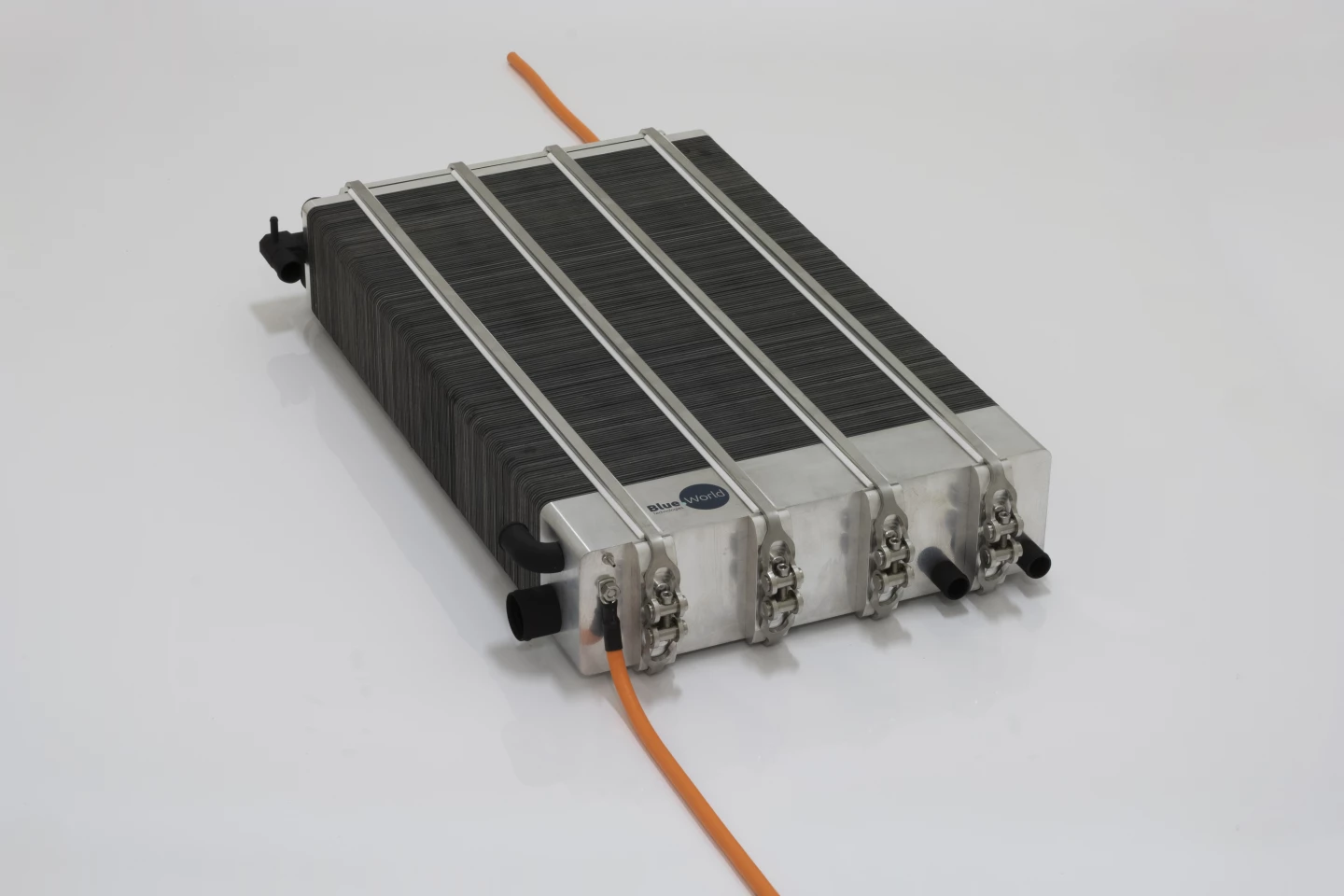
As for those 536 horses of drive power, Gumpert distributes them evenly by dropping an electric motor at each wheel. The 4WD car can sprint from 0 to 62 mph in 2.5-seconds on its way to a 186-mph (300-km/h) top speed. That top speed requires full system power, and when the battery runs dry, the car's 75-mph (120 km/h) top speed will still feel plenty comfortable on the highway. It can drive up to 510 miles (820 km) at that 75-mph cruising speed, and filling up the 65-liter methanol tank takes a mere three minutes.
"It was my vision of an electric car that does not stop when the battery is empty that paved the way for this innovation," says Roland Gumpert, Gumpert Aiways CEO. "Today, one year later, we’re able to present to you the world’s first production car with a methanol fuel cell, which does not rely on charging stations or designated hydrogen stations."
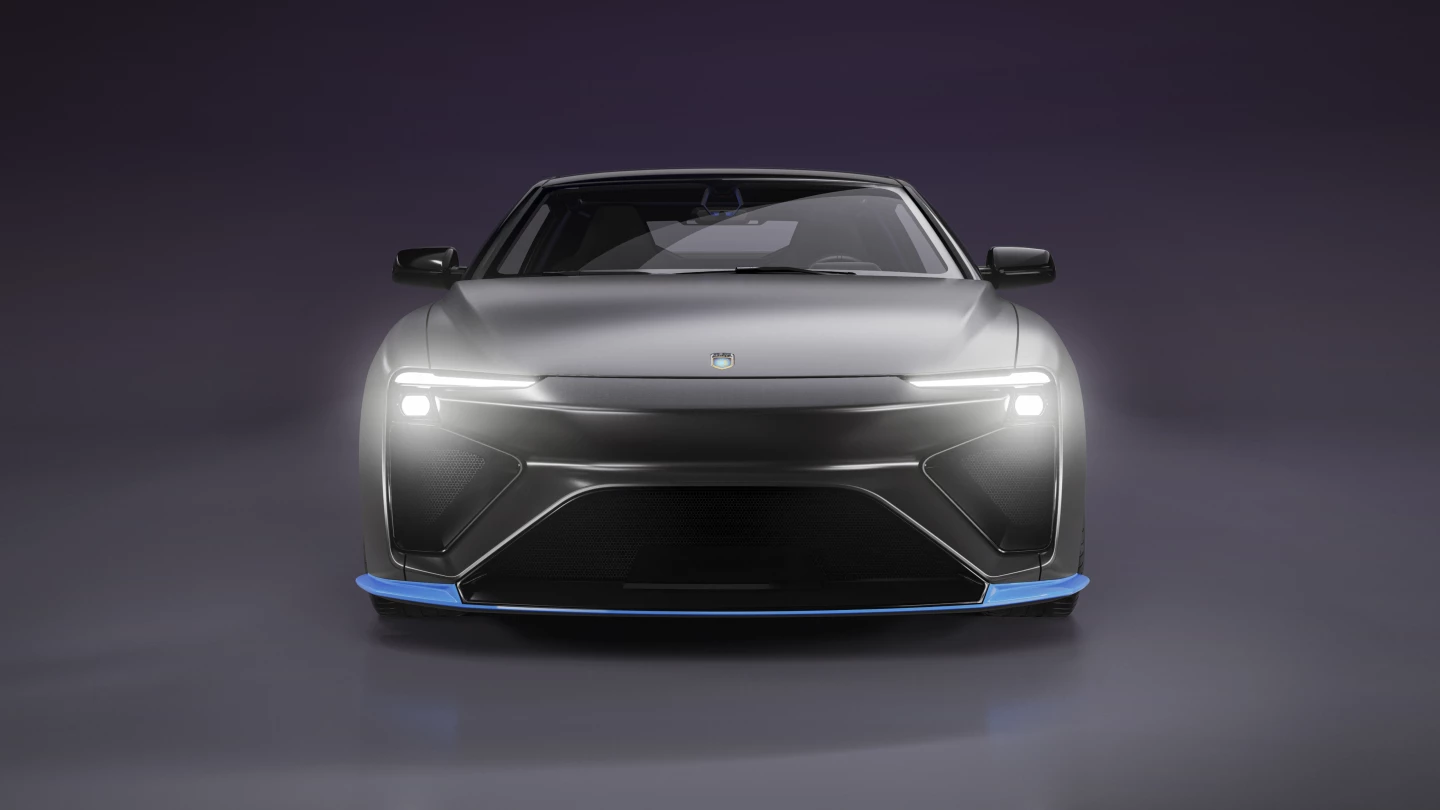
What the Nathalie does rely on is a methanol refill that won't necessarily be much easier to source than hydrogen. Gumpert plans to skirt this issue with an "overnight delivery service" in launch markets like Germany, Austria and Switzerland, and by supporting development of a supply chain in North America and the Middle East. It won't be creating any huge surge on the demand side, either, ensuring only a few people will ever have to fuel up a Nathalie by launching it as a strictly limited edition that costs over €400,000. And anyone with those kinds of means can probably figure out the methanol issue themselves.
Design-wise, the First Edition looks like something of a more subdued version of last year's purple-suited lost-at-birth Nissan GT-R sibling, but there are some notable changes. The skin atop the chromoly tube chassis is no longer simple carbon but a composite that utilizes 50 percent flax content to remain lightweight while adding an extra eco buzzword to the spec sheet. The simple doors have been replaced with scissor doors for extra flair when accessing the two-seat race-inspired cockpit (of which Gumpert Aiways provides no pictures).
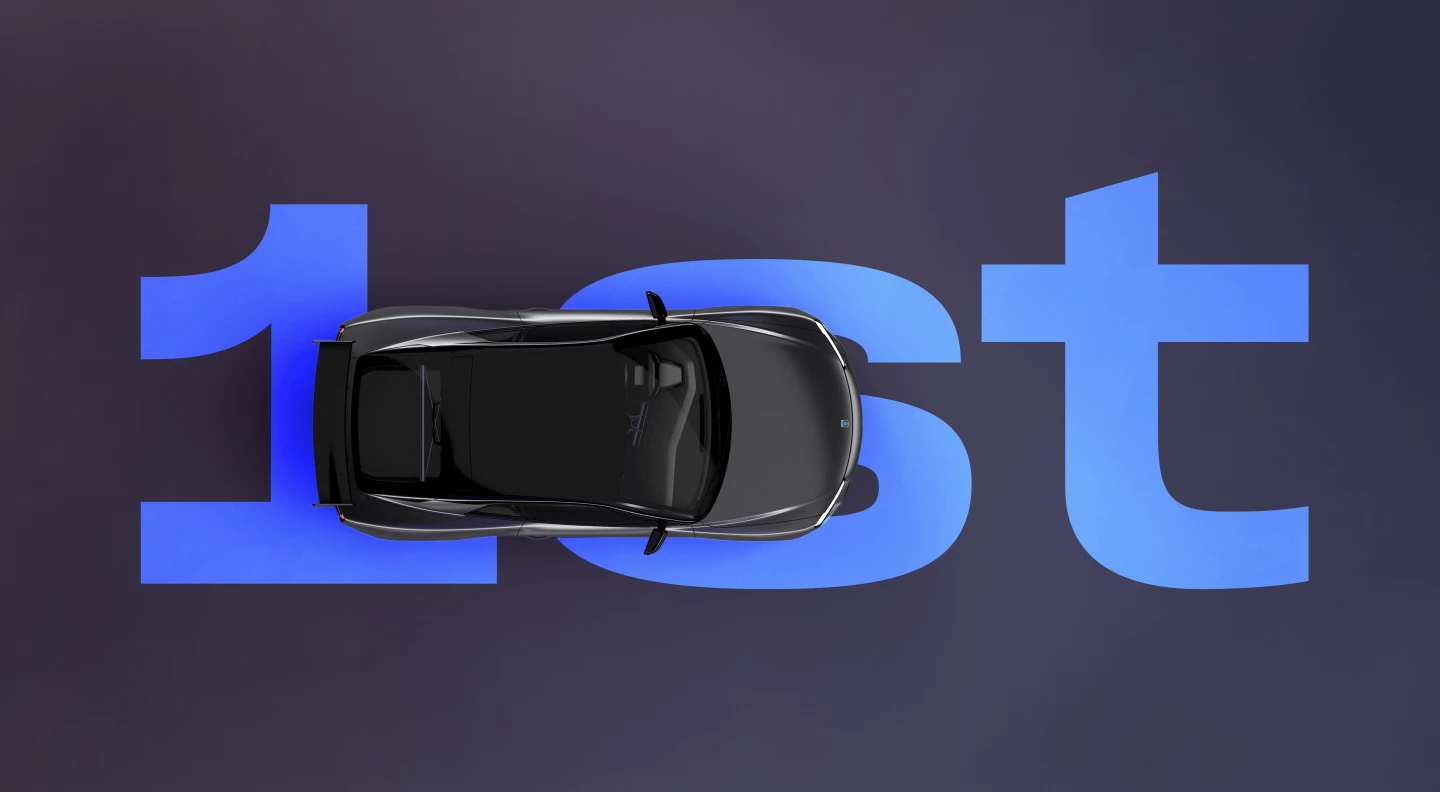
The Nathalie First Edition is available for reservation now, and deliveries will begin in the second half of 2021. Base price is €407,500 (approx. US$444,775). Gumpert Aiways plans to build no more than 500 Nathalie models in all.
Source: Gumpert Aiways
